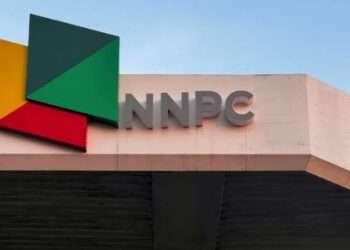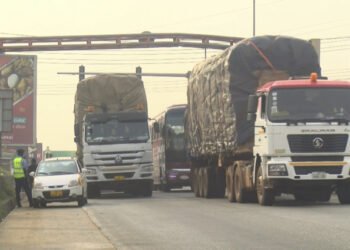In a significant move aimed at addressing the longstanding issues of inequality and inefficiency in the distribution of educational resources, the decision to scrap the Cocoa Scholarship Scheme by the Ghana Cocoa Board has been met with mixed reactions.
The Executive Director for Africa Education Watch, Kofi Asare has applauded the potential redirection of funds towards improving education infrastructure in cocoa-growing communities.
This change, Mr Asare argued, could offer more tangible benefits to the families involved in cocoa farming compared to the previous system, which often saw scholarships awarded to children of non-cocoa farmers at the expense of those who truly needed the support.
“The decision to scrap the Cocoa Scholarship is great if the cash will be invested in education infrastructure in cocoa communities where cocoa families are likely to benefit from the investment, compared to the practice where children of non-cocoa farmers even benefit from cocoa scholarships at the expense of the cocoa children”.
Kofi Asare, Executive Director for Africa Education Watch
He underscored the imperative for transparency and fairness in the allocation of public resources, especially scholarships, asserting that public scholarships are meant to level the playing field, offering opportunities to students from disadvantaged backgrounds who might otherwise be unable to afford quality education.
However, Mr Asare noted with concern that the current system administered by the scholarships secretariat has been characterized by mismanagement and inefficiency, leaving many needy students without the financial support they desperately need.
Furthermore, Mr Asare emphasized the importance of expanding and refining the public scholarship system to encompass secondary cycle needy students from the lowest income quintile households, including those from cocoa-growing areas.
He asserted that the Eduwatch free Senior High School (SHS) cost incidence report underscores the pressing need for financial support among thousands of poor students.

Mr Asare posited that while the free SHS policy has made strides in making education accessible, many students from impoverished backgrounds still struggle with ancillary costs, such as uniforms, books, and transportation, which are not covered by the policy.
“The total amount Government of Ghana (GoG) spends under Free SHS for a Day Student is GH¢ 1,300 per year; meaning, to benefit from the GH¢ 1,300 per year Free SHS subsidy, a poor Day Student in a hostel spends three times more (GH¢ 4,500).
“Compared to other ‘privileged’ Boarding Students who enjoy free accommodation and food with no transportation cost, it is logical to infer that some of the poor and the poorest, mostly from rural Ghana, for whom free SHS was meant are rather paying more to access same”.
Eduwatch’s free SHS cost incidence report
Inclusive Scholarship Programs
The Executive Director of the Africa Education Watch, in a fervent call for action highlighted the misalignment between the intended beneficiaries of the Cocoa Scholarship Scheme and those who received it.
He noted that by investing in educational infrastructure within cocoa communities, there is a higher likelihood that the benefits will reach the families that form the backbone of the cocoa industry.
Mr Asare also added that the new approach will not only ensures a more equitable distribution of resources but also addresses the systemic neglect of these communities, which have historically contributed significantly to the country’s economy.
Here, it is important to state that redirecting funds from the Cocoa Scholarship Scheme to build and improve educational facilities in cocoa communities as intimated by Mr Asare is a step in the right direction.
Better infrastructure not only enhances the learning environment but also encourages higher attendance and reduces dropout rates.
With over 5,000 schools under trees and dilapidated structures across the country according to the Africa Education Watch, the initiative is particularly important for rural and underserved areas where schools often lack basic amenities, contributing to the educational disparity between urban and rural regions.
However, it is also important to add that the shift in funding must be accompanied by robust mechanisms to ensure that the investments are effectively utilized and reach the intended beneficiaries.
There should be a transparent and accountable system in place to monitor the allocation and utilization of these resources.
Community involvement and oversight can play a critical role in ensuring that the funds are spent appropriately and that the infrastructure projects meet the needs of the students.
Again, as earlier emphasized by the Executive Director of the Africa Education Watch, in parallel with improving infrastructure, the government must address the broader issue of financial support for secondary education.
By extending the public scholarship system to include the most vulnerable students, particularly those from the lowest income quintile households, the government can help bridge the gap in educational access and equity.
This expanded scholarship program should be designed to cover not just tuition fees, but also the additional costs that often hinder students from low-income families from fully benefiting from free SHS.
Additionally, the administration of these scholarships must be streamlined to eliminate the current inefficiencies and ensure that the funds are disbursed to those who need them most.
This can be achieved through rigorous needs assessments, transparent selection processes, and regular audits to prevent mismanagement and corruption.
The remarks by Kofi Asare, the Executive Director of the Africa Education Watch serve as a timely reminder for the government to uphold transparency, and fairness in the distribution of public resources, ensuring that every child, regardless of their background, has the opportunity to pursue quality education and achieve their full potential.
READ ALSO: Israel Takes Vindictiveness To A New Level



















